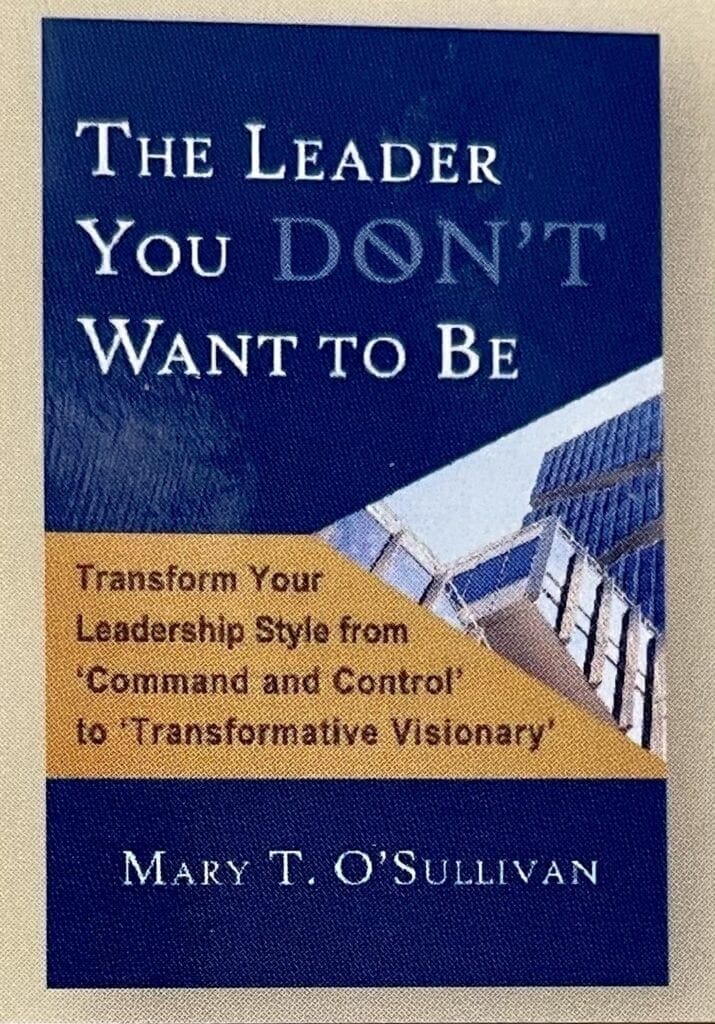Search Posts
Recent Posts
- Cranston Councilor Germain’s resignation charges get swift response, call for investigation April 18, 2024
- We Cook! Mill’s Tavern Short Rib Sage Polenta April 18, 2024
- Rhode Island Weather for April 18, 2024 – John Donnelly April 18, 2024
- Providence: A new culture in City Hall – Mayor Smiley’s FY25 Budget April 18, 2024
- RI Veterans: Did you know? 18.04.24 (100th bday, events, Q/A, fishing, resources) – John A. Cianci April 18, 2024
Categories
Subscribe!
Thanks for subscribing! Please check your email for further instructions.

When Resistance Overcomes Change – Mary T. O’Sullivan
By Mary T. O’Sullivan, MSOL
“The greatest danger in times of turbulence is not the turbulence; it is to act with yesterday’s logic” – Peter Drucker
We’ve all heard the old adage, “You can’t change anyone else; you can only change yourself.” So, we ask others to change, but have we, ourselves, internalized the change that we’re asking for?
This paradox harries the minds of counselors, coaches, government leaders and corporate executives. How to make change happen and embrace the change ourselves? When we force change on others, without integrating it ourselves, we act like hypocrites, and hypocrisy is the fast lane to resistance.
According to multiple studies and research programs, when leaders are viewed as credible examples of change, one way to move toward acceptance breaks down “old think” and removes the “blame” of resistance. Let’s take the COVID-19 vaccine, for instance.
The government wants everyone to receive the vaccine, so many government officials, celebrities, and other leaders publicly rolled up their sleeves and took their shots. Spike Lee has a commercial out right now aimed at his community, urging them to get vaccinated. With icons like these acting publicly for the welfare of the people, resistance to the vaccine has declined in many hesitant populations. In addition, more vaccine spots are becoming available, including mobile units.
For the sake of the public, leaders model the desired change behavior and vaccine resistance is dissipating. How exciting for us all in our quest to return to something resembling life in 2019!
And doesn’t it all lead right back to the idea of ditching “Command and Control” versions of authority, where we are told what to do, without explanation or understanding? We now know that resistance to change can be overcome when people have role models and buy in to the process of change. What more proof is there than the words of an anti-vaxxer after losing a loved one to COVID-19? These people are now truly vaccine reformers. When understanding toward the need for change comes from a reliable authority, like a victim’s loved one, resistance becomes a faint memory.
Resistance serves a purpose for people, it gives them a sense of power and authority, as if the resistor knows better than everyone else, based on whatever information (or misinformation) has been picked up from a number of different sources. It boils down to whom they choose to believe. Getting behind this need for “expertise” challenges scientists, medical people, and leaders at all levels. We can’t let a faulty mindset cause runaway havoc because we dismiss these people as “crazies” or “lunatics”. Again, it risks public safety and welfare. Disbelievers harm us all when they fail to heed proven science and act accordingly.
Here are some tips I’ve uncovered about how to deal with resistors in any area.
- A dose of reality: With modeling and repetition of the truth, resistant people can come to the conclusion that resistance is not to their advantage. Maybe they feel oppressed, rejected or have to deal with unreasonable personal demands. These are typical reasons for people to resist. What’s behind that need for power and authority is the question to be answered. (Wubbolding, 2012)
- A Two-Way Street: Maybe people are “stuck” because they don’t know how to act any other way. It goes back to a lack of trust in the system, dug in defensiveness and not feeling safe unless they exercise resistance. They want control. So, ask if they care about the well-being of others, and emphasize the power of positive impact on society as a whole. Allow them to think about those old values of taking care of your neighbor, as well as yourself. Help them know when they are safe, they are helping others be safe too. Ask them if they agree that conquering the virus is a goal everyone wants. The best approach creates empathy and helps realize what’s best for his friend next door with an elderly parent or how to keep a friend’s disabled child healthy. (Mitchell, 2012)
- Quick Tips for Dealing with Resistors: (Mitchell and Wubbolding, 2012)
- Don’t argue
- Don’t you be a “know it all”
- Take baby steps
- Empathize, but don’t sympathize
- Don’t buy into their “victimhood”
- Appeal to emotion, not logic
In the words of the great Buddha, “Change is never painful, only the resistance to change is painful”.
Connect with Mary:
Mary T. O’Sullivan, MSOL
401-742-1965
www.encoreexecutivecoaching.com

_____

Mary T. O’Sullivan, Master of Science, Organizational Leadership, International Coaching Federation Professional Certified Coach, Society of Human Resource Management, “Senior Certified Professional. Graduate Certificate in Executive and Professional Career Coaching, University of Texas at Dallas.
Member, Beta Gamma Sigma, the International Honor Society.
Advanced Studies in Education from Montclair University, SUNY Oswego and Syracuse University.
Mary is also a certified Six Sigma Specialist, Contract Specialist, IPT Leader and holds a Certificate in Essentials of Human Resource Management from SHRM.
